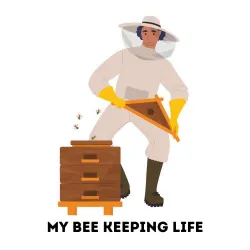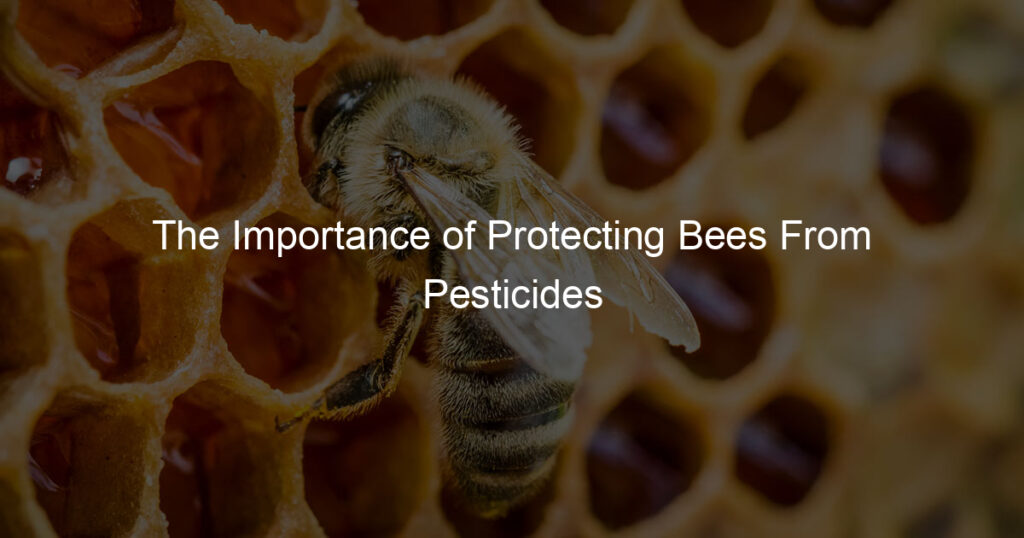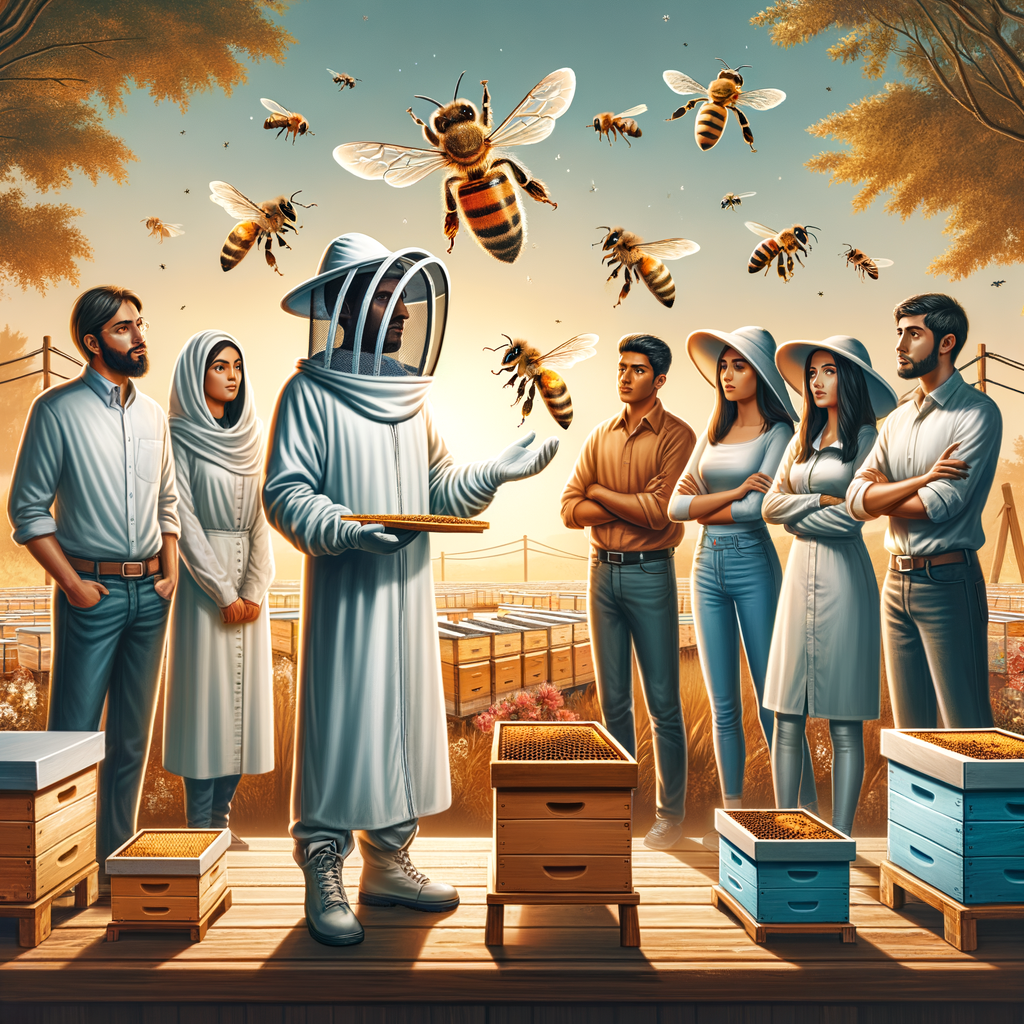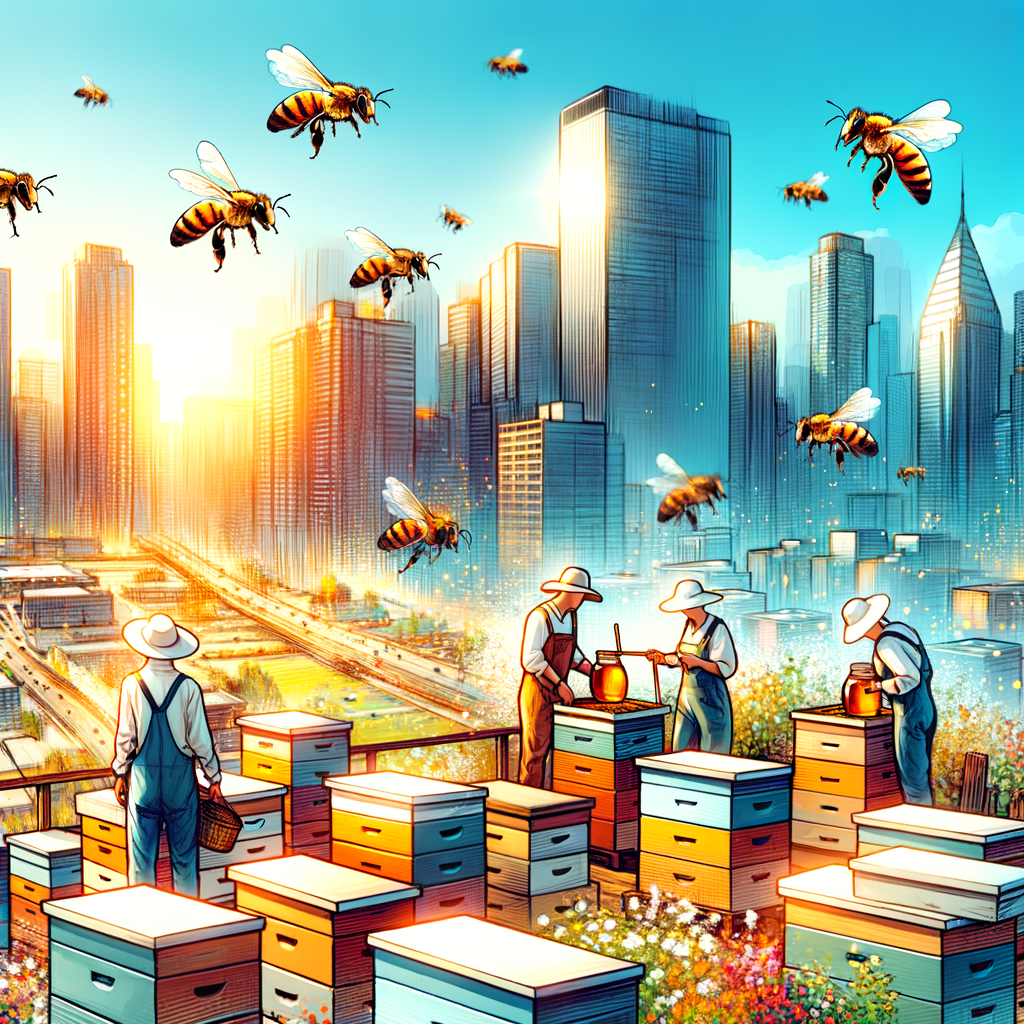Bees in an urban setting face many challenges, one of the biggest being exposed to pesticides. Pesticides can kill bees outright or weaken their immune systems, making them more susceptible to disease.
Given the importance of bees in pollinating plants, we must take steps to protect them from harmful chemicals. Here are some ways you can help keep bees safe in your city.
Why are Bees important to the environment?
Bees play an incredibly important role in the environment by helping with pollination. Through effective and consistent pollination, bees assist with the growth of flowers and crops, which contributes to the health of ecosystems across the planet.
Pollination also helps create more diverse habitats full of vibrant colors and textures. Simply put, thanks to these tiny creatures, our world is a much more beautiful place filled with valuable resources that can be utilized by future generations.
Not only do bees help in maintaining our planet’s natural systems, but their honey has also been used as a natural sweetener throughout history due to its unique flavor and nutritional benefits. Really, without the existence of bees, our world would look quite different – and not for the better!
Why are bees important in preserving biodiversity?
Bees are among the most important species when it comes to preserving biodiversity. By pollinating thousands of plant species, they are critical players in maintaining a diverse range of food sources and ecosystems.
The list of plants pollinated by bees includes important food sources like fruits and vegetables as well as flowering plants that provide habitats for wildlife. Without bees our world would look very different; it is estimated that up to 80% of global food production depends on these little creatures!
Furthermore, the process of pollination helps to create genetic diversity in both plants and animals, which is essential for their long-term sustainability. It’s no surprise then that the conservation of bee populations has been identified as one of the top priorities when it comes to preserving our planet’s biodiversity.
Why are bees important and how can we protect them?
Bees are essential to our ecosystem and play an important role in keeping it healthy. Without bees, our food sources would suffer and many species of plants, some of which have medicinal properties, would become endangered or extinct.
Pollination is not just a perk of having bees around – it is critical to the survival of most living organisms on the planet. Unfortunately, human activity has caused their numbers to dwindle significantly over the years due to loss of habitat, pesticide use, and other environmental factors.
To help protect our precious bees, we must take proactive steps such as reducing pesticide use, planting organic gardens that attract bees with flowers and herbs, constructing homes for solitary bees, and donating resources or volunteering at organizations that work to protect them. The future health of our planet depends on it!
Why is it important to save the bees?
Bees play a vital role in our ecosystem, from pollinating plants to keeping entire food chains intact. As such, we must take active steps to conserve them.
Recently, bee populations have been declining due to the destruction of their natural habitats, pests, and disease brought about by humans, and climate change. Our activities can have huge repercussions for not only bees but the entire global interconnected system.
The re-emergence of bee colonies would bring greater biodiversity and hopefully yields a better harvest for farmers around the world. Therefore, we must be proactive in protecting bee populations through conservation efforts like limiting pesticide use and supporting sustainable agricultural practices while also addressing larger climate issues. It is up to us to safeguard the bees so they may help keep our planet flourishing.
What are 5 reasons why bees are important?
Bees are invaluable members of our natural world, providing us with several important benefits.
To start, bees act as pollinators for a range of plants and crops, ensuring their growth and reproduction. This in turn allows us to reap the rewards of both wild and cultivated fruits.
Furthermore, bees have been integral to honey production since ancient times, providing people with a natural and healthy source of sugar.
Additionally, beekeepers around the world are working diligently to ensure healthy bee populations which in turn helps mitigate colony collapse disorder, ensuring even more positive outcomes for our environment.
Finally, by observing the daily foraging activities of bees and other organisms we can gain greater insight into how best to take care of our ecosystems as a whole. All things considered, it is clear that bees serve many vital purposes and should be respected accordingly.
Summary
In summary, bees are critical to the health and sustainability of urban ecosystems, yet they are also facing major threats. Moreover, humans are largely responsible for these threats—both directly and indirectly.
In particular, pesticides can have devastating effects on bee populations, particularly in urban settings where there is direct exposure to pollutants and contaminants.
Fortunately, there are a wide variety of steps that urbanites can take to help protect bee populations from the dangers posed by pesticides: planting bee-friendly plants in yards and balconies; avoiding the use of pesticides, or opting for organic alternatives; and joining or creating community initiatives that promote pollinator gardens and habitat protection.
Taking these simple actions can have a tremendous positive impact on bee populations and their ability to contribute to healthy cities everywhere.
Ultimately, it falls on us as citizens to recognize our responsibility towards environmental stewardship so that we can continue to enjoy vibrant and richly usable cities into the future.








